10 Best Herbal Tinctures For Palpitation
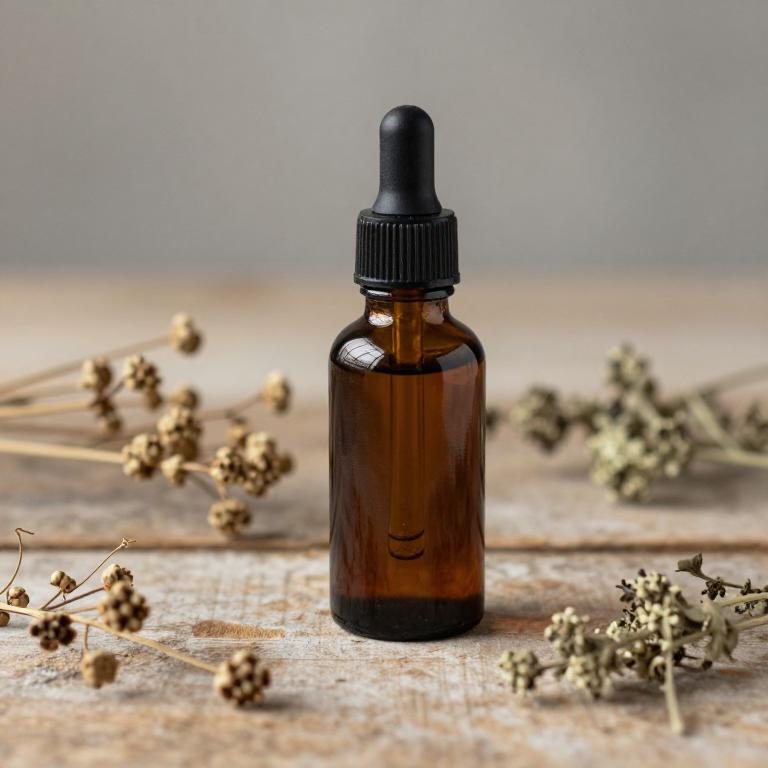
Herbal tinctures are concentrated liquid extracts made from various plants, often used to support cardiovascular health and alleviate symptoms such as palpitations.
Common herbs used in these tinctures include hawthorn, valerian root, and lemon balm, which are believed to have calming and heart-supporting properties. These tinctures work by interacting with the nervous system and cardiovascular functions to reduce heart rate variability and ease anxiety-related palpitations. They are typically taken in small doses and can be a natural alternative for individuals seeking non-pharmacological treatments.
However, it is important to consult with a healthcare professional before using herbal tinctures, especially for those with pre-existing medical conditions or on other medications.
Table of Contents
- 1. Valerian (Valeriana officinalis)
- 2. Purple foxglove (Digitalis purpurea)
- 3. St. john's wort (Hypericum perforatum)
- 4. Common hawthorn (Crataegus oxyacantha)
- 5. Chamomile (Matricaria chamomilla)
- 6. Licorice (Glycyrrhiza glabra)
- 7. Kava (Piper methysticum)
- 8. Maypop (Passiflora incarnata)
- 9. Ginkgo (Ginkgo biloba)
- 10. Stinging nettle (Urtica dioica)
1. Valerian (Valeriana officinalis)

Valeriana officinalis, commonly known as valerian, is a traditional herbal remedy often used in the form of tinctures to address various health concerns, including palpitations.
These tinctures are typically prepared by soaking the dried roots of the plant in alcohol, allowing the active compounds to be extracted over time. Valerian root is believed to have calming effects on the nervous system, which may help reduce the frequency and intensity of palpitations caused by anxiety or stress. The primary active compounds, such as valerenic acid and essential oils, are thought to influence the central nervous system and promote relaxation.
While valerian tinctures are generally considered safe for short-term use, it is advisable to consult a healthcare professional before starting any herbal treatment, especially for individuals with existing medical conditions or those taking other medications.
2. Purple foxglove (Digitalis purpurea)
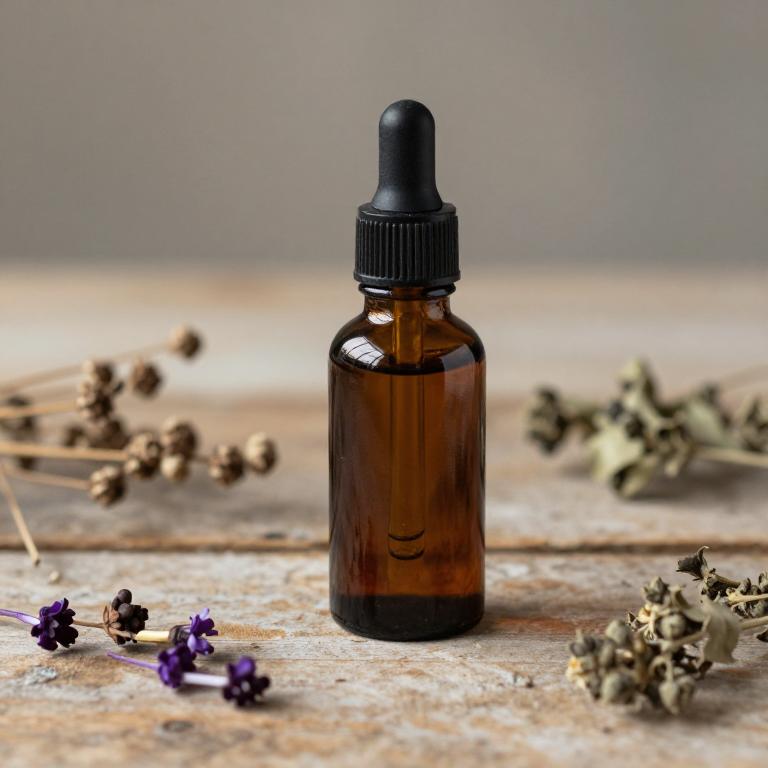
Digitalis purpurea, commonly known as foxglove, has been historically used in herbal medicine for its cardiovascular effects, and its tinctures are sometimes employed to address symptoms like palpitations.
The active compounds, primarily cardiac glycosides such as digoxin and digitoxin, can help regulate heart rhythm by enhancing the force of cardiac contractions and slowing the heart rate. However, due to its potent nature, digitalis purpurea tinctures require careful preparation and precise dosing to avoid toxicity, which can lead to serious side effects. While some traditional practitioners may use these tinctures under supervision for arrhythmias or heart failure, modern medical guidelines generally recommend pharmaceutical alternatives with more controlled delivery.
It is crucial to consult a healthcare professional before using digitalis purpurea tinctures, as self-medication can be dangerous.
3. St. john's wort (Hypericum perforatum)

Hypericum perforatum, commonly known as St. John's Wort, is a herbal remedy traditionally used for its potential antidepressant properties and its ability to support nervous system health.
When prepared as a tincture, it is often taken orally to help manage symptoms of anxiety and mild depression, which can contribute to palpitations. The active compounds in hypericum perforatum, such as hypericin and hyperforin, are believed to influence neurotransmitter levels in the brain, potentially reducing the frequency and intensity of palpitations. However, it is important to note that St. John's Wort can interact with various medications, including antidepressants and birth control, so it should be used under the guidance of a healthcare professional.
Despite its historical use, individual responses to hypericum perforatum tinctures can vary, and it is not a substitute for medical treatment in cases of severe or persistent palpitations.
4. Common hawthorn (Crataegus oxyacantha)
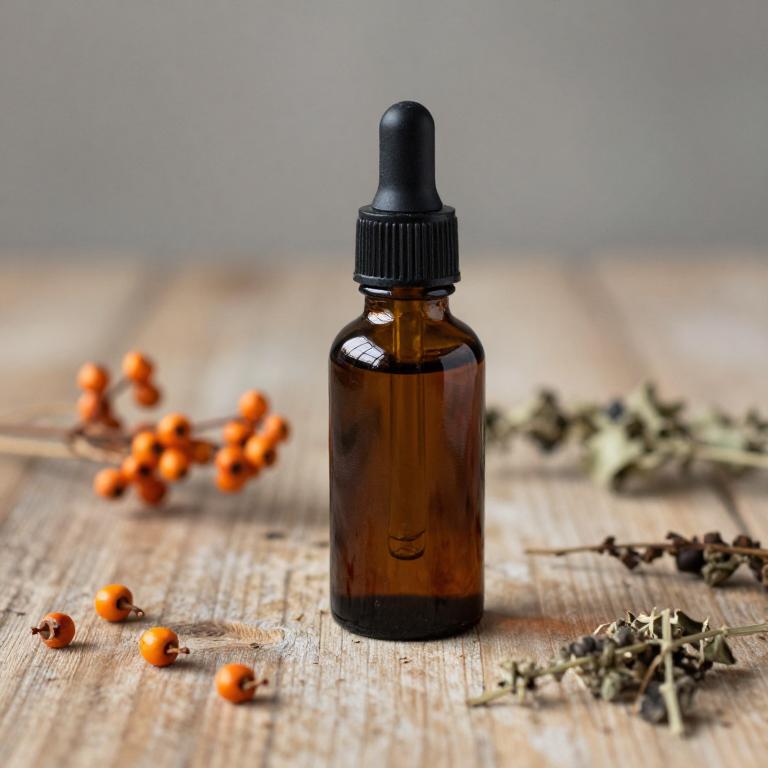
Crataegus oxyacantha, commonly known as hawthorn, has been traditionally used in herbal medicine to support heart health and alleviate symptoms such as palpitations.
Its tinctures are prepared from the leaves, flowers, and berries of the plant, which contain bioactive compounds like flavonoids and oligomeric proanthocyanidins that may help regulate heart rhythm and improve circulation. Hawthorn tinctures are often used to manage conditions like arrhythmia and hypertension, which can contribute to palpitations. The herb is believed to strengthen cardiac function by enhancing blood flow and reducing oxidative stress.
However, it is important to consult a healthcare professional before using hawthorn tinctures, especially for individuals with existing heart conditions or those taking medications.
5. Chamomile (Matricaria chamomilla)
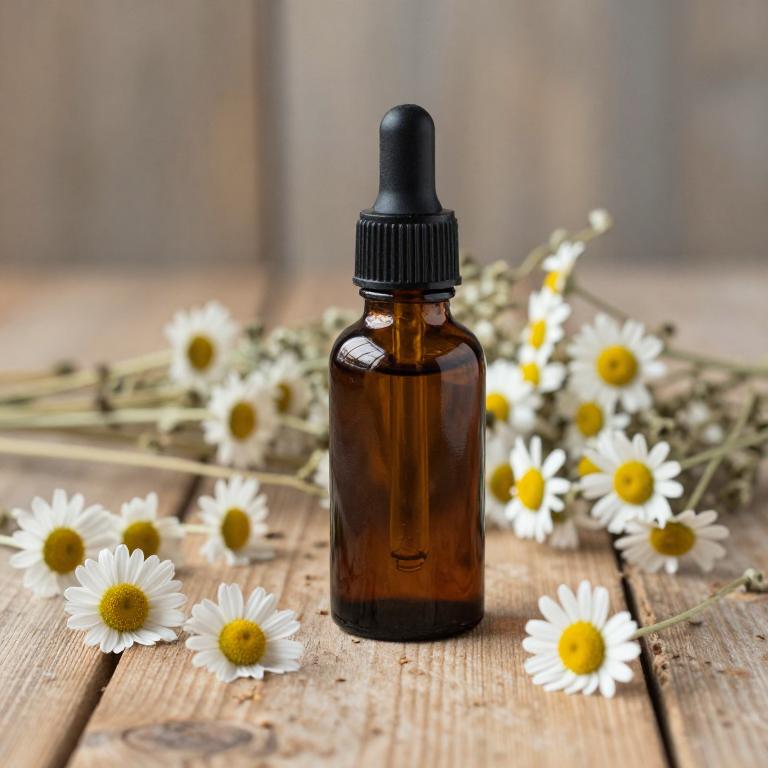
Matricaria chamomilla, commonly known as chamomile, is a popular herbal remedy often used in tincture form to address various health concerns, including palpitations.
Chamomile tinctures are valued for their calming and sedative properties, which can help reduce anxiety and stress—common triggers for palpitations. The active compounds in chamomile, such as apigenin and bisabolol, are believed to interact with the central nervous system to promote relaxation and ease heart rhythm irregularities. When used as a tincture, chamomile is typically diluted in water or alcohol and taken orally, though it is important to consult a healthcare professional before use, especially for those with existing medical conditions or on medication.
While some studies suggest its potential benefits, more research is needed to fully understand its efficacy in treating palpitations.
6. Licorice (Glycyrrhiza glabra)

Glycyrrhiza glabra, commonly known as licorice root, has been traditionally used in herbal medicine for its potential cardiovascular benefits, including its effects on palpitations.
The active compounds in licorice root tinctures, such as glycyrrhizin and flavonoids, may help regulate heart rhythm by influencing adrenal gland function and reducing stress-induced palpitations. However, prolonged use of licorice tinctures can lead to side effects like hypertension and electrolyte imbalances due to its mineralocorticoid-like effects. As a result, it is generally recommended to use licorice root tinctures under the guidance of a qualified herbalist or healthcare provider, especially for individuals with existing heart conditions.
Despite its historical use, more scientific research is needed to fully understand its efficacy and safety in treating palpitations.
7. Kava (Piper methysticum)
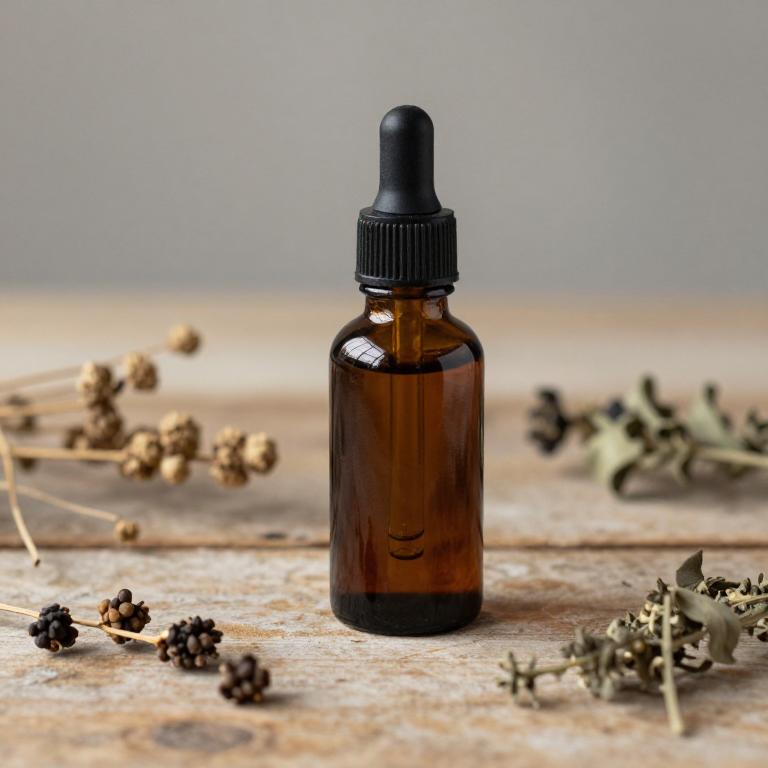
Piper methysticum, commonly known as kava, has been traditionally used for its calming effects and is sometimes incorporated into herbal tinctures for managing palpitations.
These tinctures are typically prepared by extracting the roots of the plant using alcohol, which helps preserve the active compounds such as kavalactones. While some studies suggest that kava may help reduce anxiety and stress, which can contribute to palpitations, it is important to note that its safety and efficacy for this specific use are not well-established in clinical research. Due to potential side effects and interactions with other medications, it is advisable to consult a healthcare professional before using kava tinctures for palpitations.
Overall, while kava may offer some relief for anxiety-related palpitations, it should be used cautiously and under medical guidance.
8. Maypop (Passiflora incarnata)
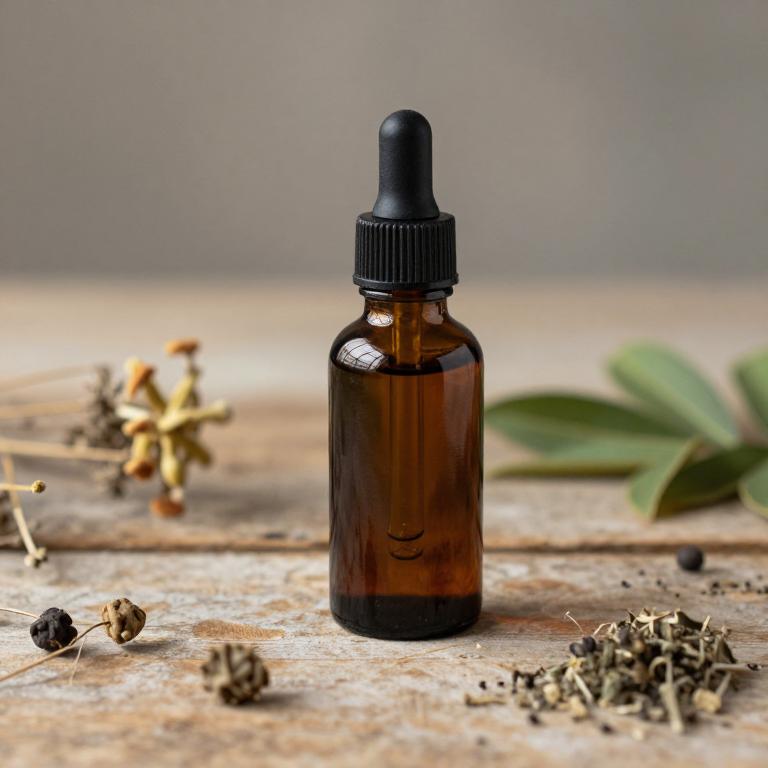
Passiflora incarnata, commonly known as passionflower, is a herbal remedy that has been traditionally used to alleviate symptoms of palpitations, which are sensations of a racing, fluttering, or irregular heartbeat.
The tincture form of Passiflora incarnata is often preferred for its ease of use and consistent dosage, making it a popular choice for those seeking natural support for heart-related anxiety or stress-related palpitations. This herb contains compounds such as flavonoids and alkaloids that may help calm the nervous system and reduce anxiety, which are common contributors to palpitations. When used as a tincture, Passiflora incarnata is typically diluted in water or taken with meals to minimize potential stomach irritation.
It is important to consult with a healthcare provider before using passionflower tinctures, especially for individuals with existing heart conditions or those taking medications.
9. Ginkgo (Ginkgo biloba)
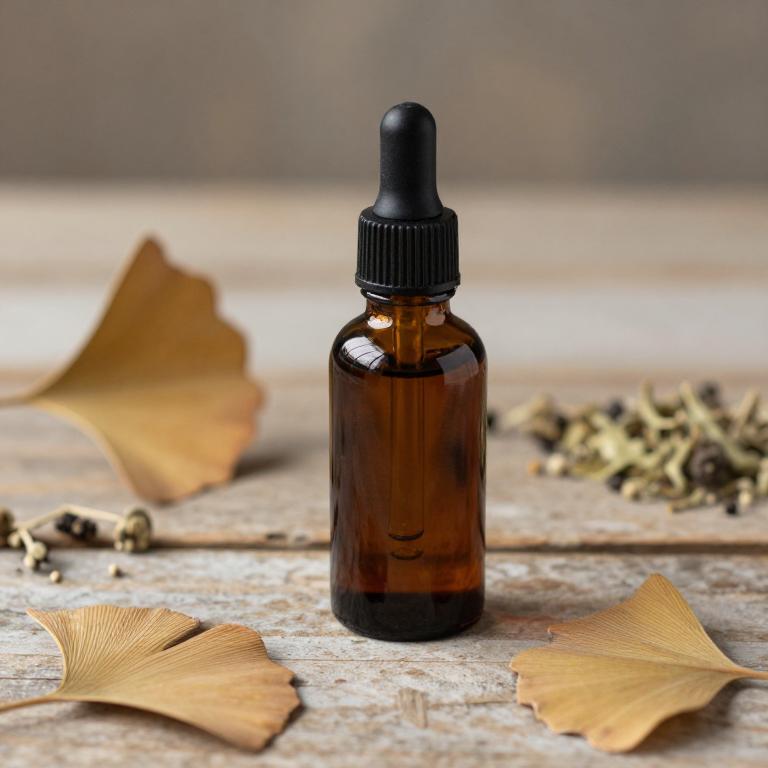
Ginkgo biloba herbal tinctures are commonly used for their potential to improve circulation and support cognitive function, which may indirectly help with symptoms of palpitations by reducing stress and enhancing blood flow.
These tinctures contain bioactive compounds such as flavonoids and terpenoids, which are believed to have antioxidant and anti-inflammatory properties. While some studies suggest that ginkgo biloba may help regulate heart rhythm and reduce anxiety-related palpitations, more research is needed to confirm its efficacy in this specific context. It is often recommended as a complementary therapy under the guidance of a healthcare professional, especially for individuals experiencing persistent or severe palpitations.
As with any herbal supplement, it is important to consult a physician before use, particularly if you are on medication or have underlying heart conditions.
10. Stinging nettle (Urtica dioica)

Urtica dioica, commonly known as stinging nettle, has been traditionally used in herbal medicine for its potential cardiovascular benefits.
When prepared as a tincture, Urtica dioica may support heart health by promoting healthy blood circulation and reducing oxidative stress. Some studies suggest that its bioactive compounds, such as flavonoids and minerals, may help regulate heart rate and alleviate symptoms of palpitations. However, it is important to consult with a healthcare professional before using stinging nettle tinctures, especially for individuals with existing heart conditions or those taking medications.
While anecdotal evidence supports its use for palpitations, more clinical research is needed to fully understand its efficacy and safety profile.